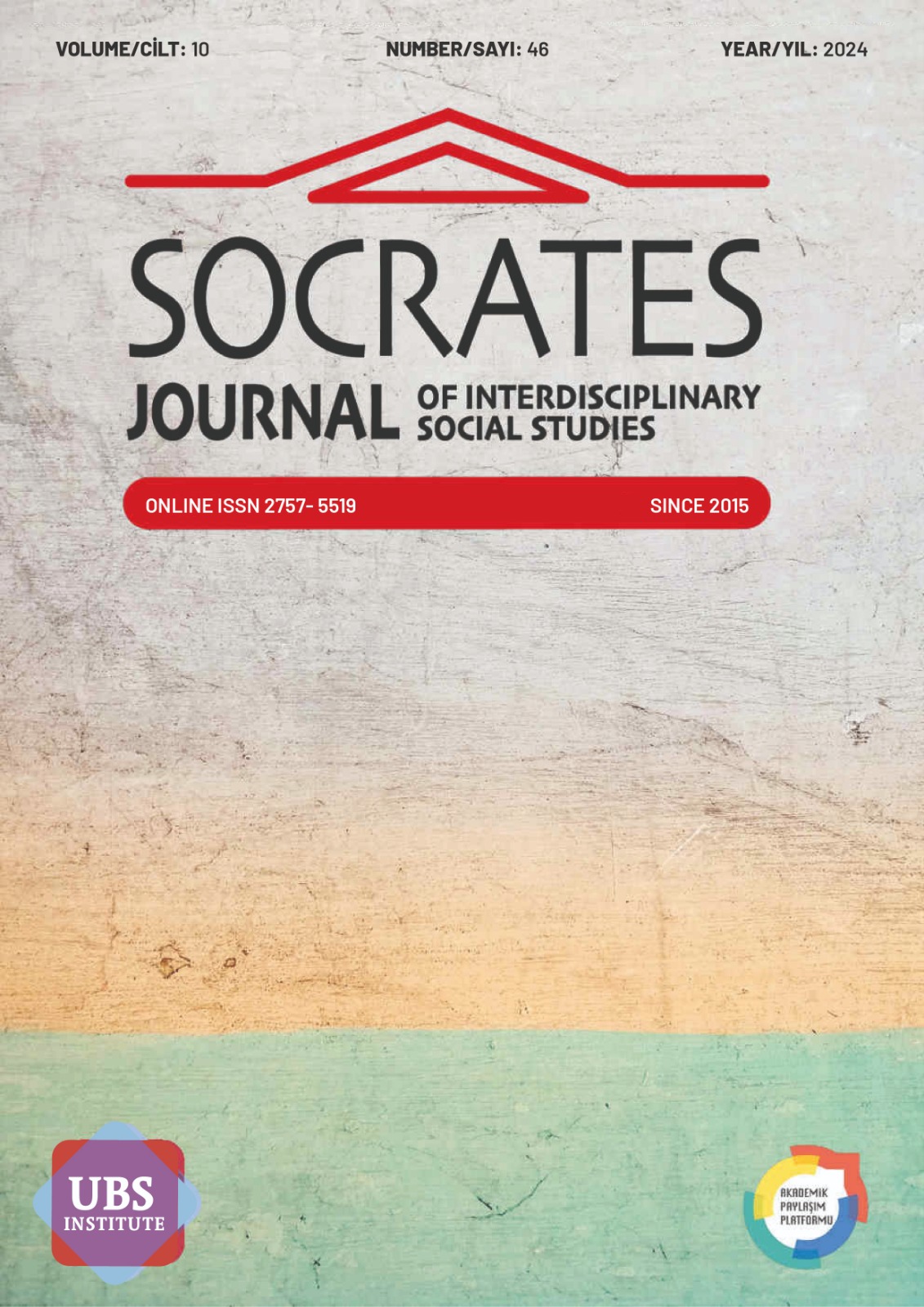THE RELATIONSHIP BETWEEN NEPOTISM LEADERSHIP AND ORGANIZATIONAL LEARNING IN ORGANIZATIONS
KURUMLARDA NEPOTİZM LİDERLİĞİ VE ÖRGÜTSEL ÖĞRENME ARASINDAKİ İLİŞKİ
DOI:
https://doi.org/10.5281/zenodo.14024884Anahtar Kelimeler:
Nepotism,Leadership,Learning,ProductivityÖzet
The purpose of the research is to examine the effects of nepotism, in other words favoritism, on leadership behaviors and learning within the organization. Understanding the negative effects of nepotism and preventing favoritism can be a critical factor for the success of organizations and countries. Because trust is important for the economy of countries and the success of organizations. While fair and effective leadership paves the way for organizational learning, negative practices such as nepotism can negatively affect these processes. Therefore, the findings of the study can provide practical contributions in the field of organization management. In this context, the study will be important. The reason for the study is that the research on favoritism, which is a frequently encountered problem in modern organizations, is limited. The method of the research is literature review. As a result of the literature review, all hypotheses created were accepted.
Referanslar
Aasland, M. S., Skogstad, A., Notelaers, G., Nielsen, M. B., & Einarsen, S. (2010). The prevalence of destructive leadership behavior. British Journal of Management, 21(2), 438-452.
Aldrich, D. P., & Meyer, M. A. (2015). Social capital and community resilience. American Behavioral Scientist, 59(2), 254-269.
Arasli, H., & Tumer, M. (2008). Nepotism, favoritism, and cronyism: A study of their effects on job stress and job satisfaction in the banking industry of North Cyprus. Social Behavior and Personality: An International Journal, 36(9), 1237-1250.
Arasli, H., Bavik, A., & Ekiz, E. H. (2006). The effects of nepotism on human resource management: The case of three, four, and five-star hotels in Northern Cyprus. International Journal of Sociology and Social Policy, 26(7/8), 295-308.
Baker, N. (2022). The evolution of leadership and key leadership styles. Florya Chronicles of Political Economy, 8(1), 29-46.
Bass, B. M., & Avolio, B. J. (1994). Improving organizational effectiveness through transformational leadership. Sage.
Baş, F. F. (2019). Nepotizmin Çalışan Davranışları Üzerindeki Etkileri (Yayımlanmamış yüksek lisans tezi). Bursa Uludağ Üniversitesi Sosyal Bilimler Enstitüsü, Bursa
Berkman, L. F., Kawachi, I., & Glymour, M. M. (Eds.). (2014). Social epidemiology. Oxford
Bilal, A. R., Fatima, T., & Imran, M. K. (2020). Shutting eyes to merit! The curse of cronyism in Pakistani small and medium-scale businesses. South Asian Journal of Human Resources Management, 7(1), 61-90.
Bourdieu, P. (2018). The forms of capital. In The sociology of economic life (pp. 78-92). Routledge.
Coleman, J. S. (1988). Social capital in the creation of human capital. American Journal of Sociology, 94, 95-120.
Demirel, Y., & Kubba, Z. İ. (2014). The effect of organizational learning on innovation: A study in the automotive sector. Journal of Knowledge Economics and Management, 9(2), 137-151.
Ercan, Ü. (2014). Learning organizations, organizational change, and resistance to change: A proposed typology. Journal of Work and Human, 1(1), 33-42.
Fukuyama, F. (1996). Trust: The social virtues and the creation of prosperity. Simon & Schuster.
Gider, İ. ve Okçu, V. (2022). The relationship between nepotistic behaviors in school management and teachers’ levels of job alienation. Anatolian Journal of Educational Leadership and Teaching, 10(2), 48-70.
Karaçınar, H. ve Özdemir, L. (2022). The effect of employees’ perceptions of dark leadership and nepotism on presenteeism: A study on textile employees. Journal of Economic, Administrative and Political Research, 7(19), 620-643. https://doi.org/10.25204/iktisad.1148684
Khatri, N., & Tsang, E. W. (2016). Antecedents and consequences of cronyism in organizations. In Crony capitalism in India: Establishing robust counteractive institutional frameworks (pp. 9-31).
Mohammed, T., & Baş, D. P. (2020). The effect of transformational leadership style on organizational culture and business innovation. Journal of Political Science, Economics and Management Research, 8(2), 98-122.
Northouse, P. G. (2021). Leadership: Theory and practice. Sage Publications.
Ozdemir, L., & Karaçınar, H. (2022). The impact of dark leadership on nepotism: Perceptions of textile sector employees. Süleyman Demirel University Visionary Journal, 13(30, Yön Org 2022), 1-15. https://doi.org/10.21076/vizyoner.1143408
Örmeci, B., & Öcal, H. (2023). The mediating role of organizational learning capability in the relationship between technological innovation capability and firm performance: A study on SMEs in Izmir. Management and Political Sciences Review, 5(1), 32-54.
Özaralli, N. (2003). Effects of transformational leadership on empowerment and team effectiveness. Leadership & Organization Development Journal, 24(6), 335-344.
Padgett, M. Y., & Morris, K. A. (2005). Keeping it "all in the family": Does nepotism in the hiring process really benefit the beneficiary? Journal of Leadership & Organizational Studies, 11(2), 34-45.
Putnam, R. D. (2000). Bowling alone: The collapse and revival of American community. Simon & Schuster. University Press.
Yeşil, A. (2016). A conceptual review of leadership and motivation theories. International Journal of Academic Management Sciences, 2(3), 158-180.
İndir
Yayınlanmış
Nasıl Atıf Yapılır
Sayı
Bölüm
Lisans
Telif Hakkı (c) 2024 Socrates Journal of Interdisciplinary Social Studies

Bu çalışma Creative Commons Attribution 4.0 International License ile lisanslanmıştır.


